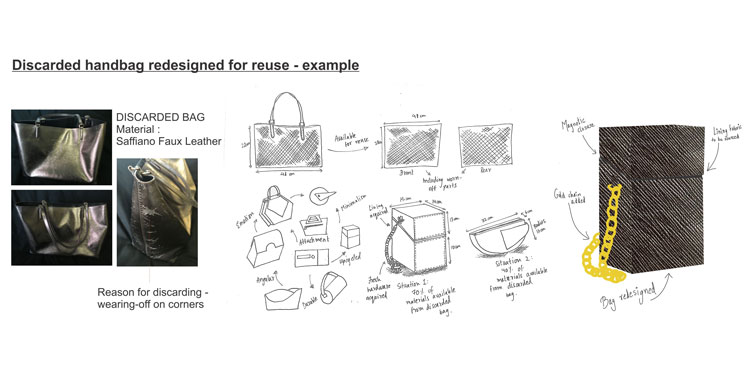Prityanka Gangwal from MA Psychology for Fashion Professionals recently received a Fashion Matters Award to help fund her final project. We spoke to her about the process of applying and how the award will help her.

How did you find the award application process?
The application process was quite straightforward. It helped me look further into my final project and structure it, in relation to its process and outcome.
How will this award help you realise your final project?
The award is going to help me prototype my research outcomes. I will be using the scholarship to sample 1-2 handbag designs viewed as ’emotionally durable’ against fast fashion designs of handbags.
Tell us why fashion matters, and how your work reflects this idea/these ideas?
Durable attachment with the fashion products we are surrounded by is not very common. Landfill sites are overloaded with fully functioning products, for example – clothes which still fit, shoes with intact soles, etc. Nearly 48% of people discard 13.1 million tons of textile each year, of which only 2 million tons are recovered for reuse or recycling. A deep product attachment has the potential of increasing the lifespan of an object and thus improve the sustainability of Fashion. The aims of “empathetic design” and emotionally durable design are to build on a greater understanding of an individual’s needs and values. My study assesses the relation of design, emotion and attachment in handbags, allowing us to better understand the ‘durable emotion’ of handbag consumers.

Priyanka’s work
As designers, it is important to place greater emphasis on understanding the processes of consumption- how people use the products of design and use them to design their own everyday lives and cultural meanings. Emotion design is a tool of providing consumers with a greater design experience. The study on nature of emotions, relations developed between products and users, and their cognitive responses stimulated, to develop design strategies, will contribute in initiating a consumption revolution against fast fashion.
Tell us about your final project?
As product newness is always a vital selling point, my research aims to understand design judgement, determine which form and elements trigger particular reasoning and thinking responses among consumers. This could be of particular help in determining the extent of change required in designs of newer products which can be made emotionally durable.
20 participants (10 handbag designers and 10 consumers aged 20-40 years) will first be asked to complete a 11 items questionnaire, assessing the importance of handbag design, the attachment and emotion that consumers feel for handbags. Later, a one to one semi-structured interview with participants will delve further into the questionnaires’ answers. It is hypothesised that the more a fashion product induced positive emotions the greater its emotional durability is.

